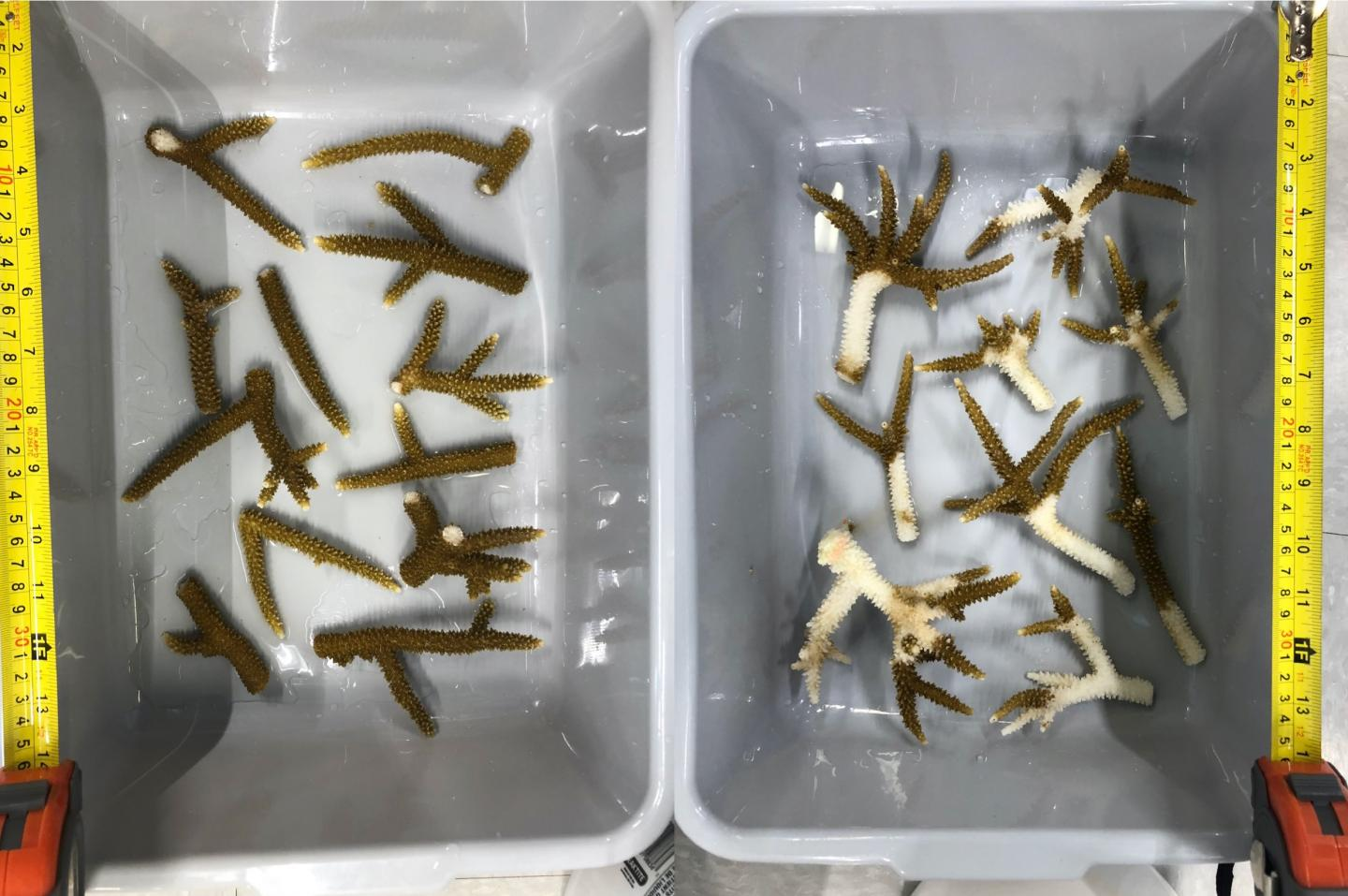Oct 28 2020
According to a new study by Oregon State University (OSU), corals that seem healthy are more likely to get sick when they become home to excessive parasitic bacteria.
 Healthy and diseased Acropora cervicornis (OSU College of Science). Image Credit: College of Science, Oregon State University.
Healthy and diseased Acropora cervicornis (OSU College of Science). Image Credit: College of Science, Oregon State University.
The study, which was funded by the National Science Foundation and published in the Environmental Microbiology journal, offers a better understanding of the fight to save the Earth’s besieged coral reefs, specifically those in the Caribbean.
The clear relationship we’ve discovered between this kind of bacteria and disease resistance in Caribbean staghorn coral is a crucial piece of the puzzle for coral restoration efforts in that region.
Becca Maher, Study Co-Author and PhD Candidate, Oregon State University
Coral reefs occur in <1% of the ocean but are home to approximately one-quarter of all well-known marine species. Thus, they help control the carbon dioxide levels in the sea and are a critical hunting ground used by researchers in their pursuit of new medicines.
From 2014 to 2017, over 75% of the world’s reefs underwent bleaching-level heat stress, and 30% experienced mortality-level stress. Bleaching refers to the collapse of the symbiotic relationship existing between corals and the algae they depend on for energy.
An intricate composition of fungi, viruses, bacteria, archaea, and dinoflagellates constitute the coral microbiome, and changes in microbiome composition are linked to variations in coral health.
In 2019, researchers in the lab of microbiologist Rebecca Vega Thurber from OSU found out a new genus of parasitic bacteria that prospers while reefs get polluted with nutrients, draining energy from the corals and making them more vulnerable to disease.
The bacteria belong to the order Rickettsiales, and the new genus is related mainly to aquatic organisms. Researchers named the genus Candidatus Aquarickettsia, where the coral-related species identified in the 2019 study—Candidatus A. rohweri—was the initial one in the new genus to have its genome entirely sequenced.
From the time they first emerged 425 million years ago, corals have branched into over 1,500 species, such as the one at the center of this study—the critically endangered Acropora cervicornis, generally called the Caribbean staghorn coral.
The bacterial genus we've identified is found around the world and in multiple types of corals but is most notably found in high abundance in the microbiomes of Caribbean staghorn coral. Now we've uncovered significant evidence that a high abundance of Ca. Aquarickettsia is a marker of disease susceptibility in corals that otherwise seem healthy.
Grace Klinges, Study Co-Author and PhD Candidate, Vega Thurber Lab, Oregon State University
According to Klinges, disease-resistant corals were discovered to host a much more uniform mix of several types of bacteria. Furthermore, due to the heat stress experienced by corals from a warming ocean, the microbiome dominance of Ca. Aquarickettsia diminished.
That’s apparently because the bacteria rely on host nutritional resources that become scarce during periods of stress. And then the sudden loss of a dominant community member frees up niche space and creates openings for opportunistic pathogens to proliferate and sicken the coral.
Rebecca Vega Thurber, Microbiologist, Oregon State University
The study was headed by Erinn Muller from the Mote Marine Laboratory in Sarasota, Florida.
Journal Reference:
Klinges, G., et al. (2020) Parasitic ‘Candidatus Aquarickettsia rohweri’ is a marker of disease susceptibility in Acropora cervicornis but is lost during thermal stress. Environmental Microbiology. doi.org/10.1111/1462-2920.15245.